Jacques Rougerie Foundation International Competition results
By Bustler Editors|
Friday, Jan 23, 2015
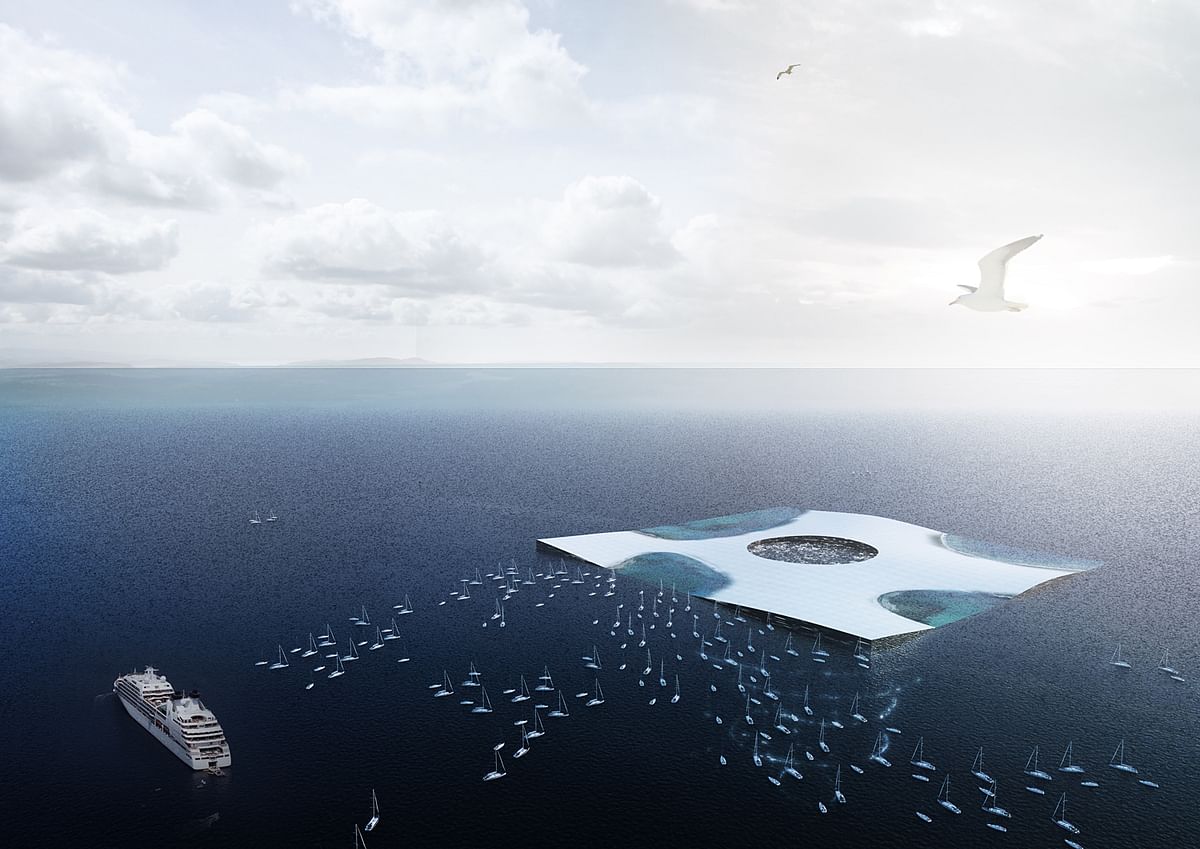
Related
The Jacques Rougerie Foundation recently revealed the results for their fourth International Architecture Competition, based on the Foundation's mission to provide creative opportunities for young architects and designers. The competition's topics focus on the elements of Water and Space.
Out of 1,749 applications worldwide, the three top-prize winners -- or Laureates -- were selected in their respective categories:
- Innovation and Architecture for the Sea: BIODIVER[CITY]
- Architecture and the Sea Level Rise: PLASTIC 2.0
- Innovation and Architecture for Space: MARS MISSION
The Laureates each received a prize of €10,000. The jury also selected Special Mention, Coup de Cœur du Jury, and Coup de Cœur Babel-Collectif winners in each category.
Check out the winning projects below.
INNOVATION AND ARCHITECTURE FOR THE SEA Laureate: BIODIVER[CITY]
Team: Quentin Perchet, Thomas Yvon and Zarko Uzelac | France and Serbia
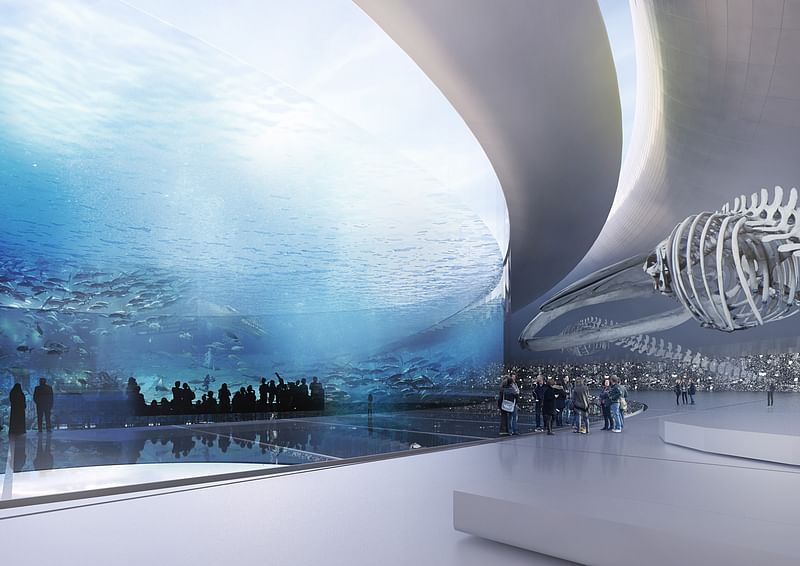
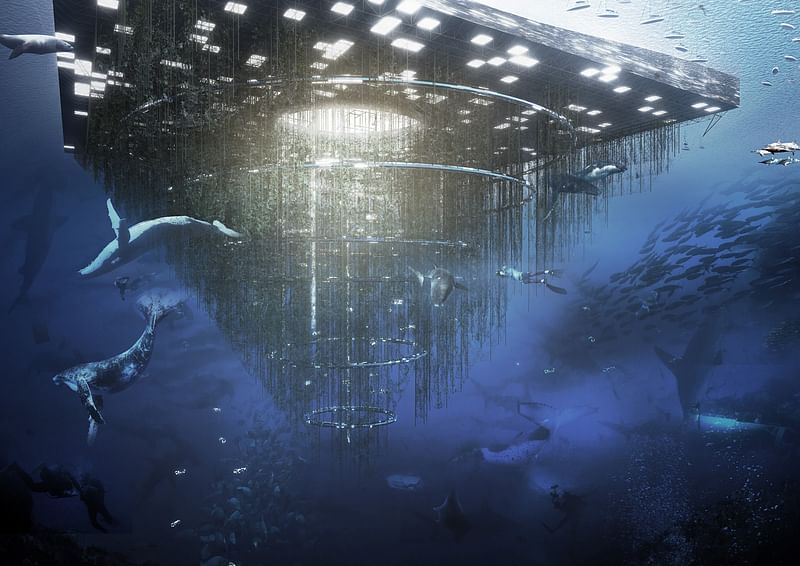
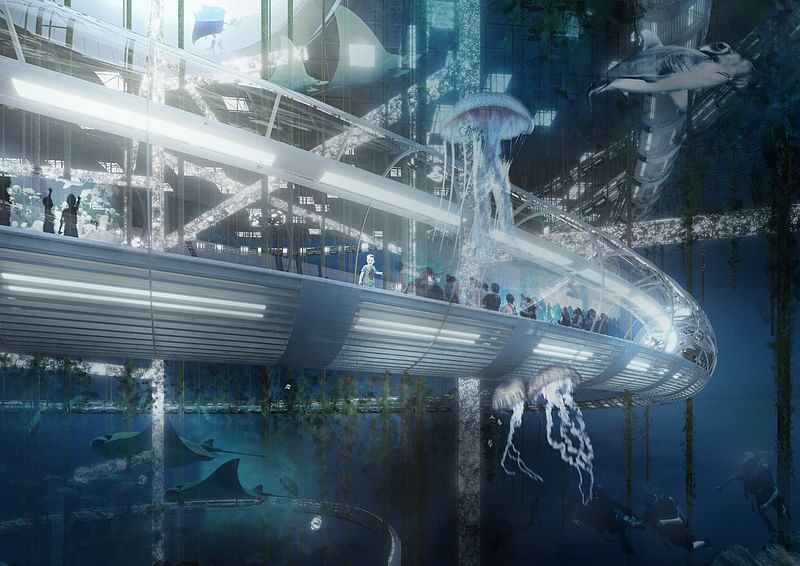
Project description: "Oceanic zoo of awareness: The oceanic environment, the largest ecosystem of our planet, is one of the most fragile, manhandled by man and the pollution he generates, as well as by nature itself when creating hurricanes that sometimes destroys reefs entirely. The project BIODER(CITY) is the first zoo located in the ocean. It is made to bring man closer to the beauty of aquatic wilderness and awaken him to the respect of the sea. A journey through all levels of sea life is available for the visitors : observation of all the species living near the reef or deeper in the sea, discovery of aquatic animals through all the floors going from the closer ones living near the reef and those living deeper in the sea thanks to a submarine tunnel. The trip is ending with an exhibit on the protection of our oceans.
The project is supported by a floating platform with three levels. A tubular structure is suspended to this platform acting as a growth support for all the marine organisms, including corals. The submarine tunnel is enrolling like a vortex through different marine worlds of our oceans. Firstly the surface waters present big mammals like whales or dolphins and visitors can discover the world of coral reef with all its different coral forms and colored fishes. Finally, diving into the blue and yet unknown abyssal word leads us to discover creatures of another time."
Architecture and the Sea Level Rise - Laureate: "PLASTIC 2.0"
Team: Bao Thu Nguyen / Hoang Anh Tran / Le Hung Nguyen / Khanh Chi Tran | Vietnam
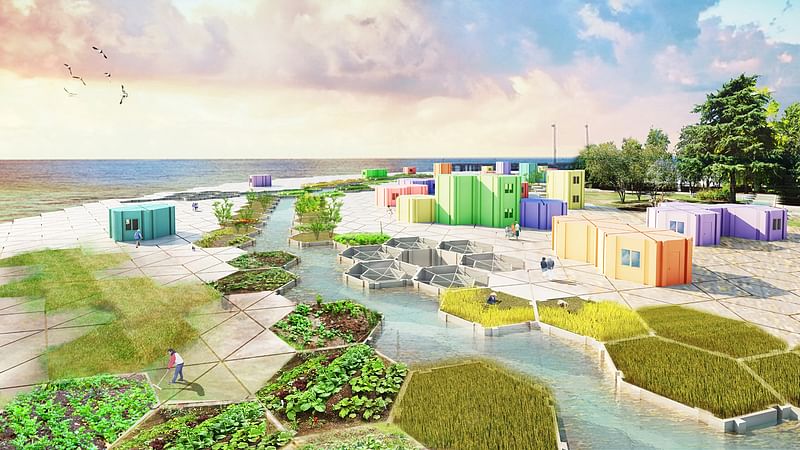
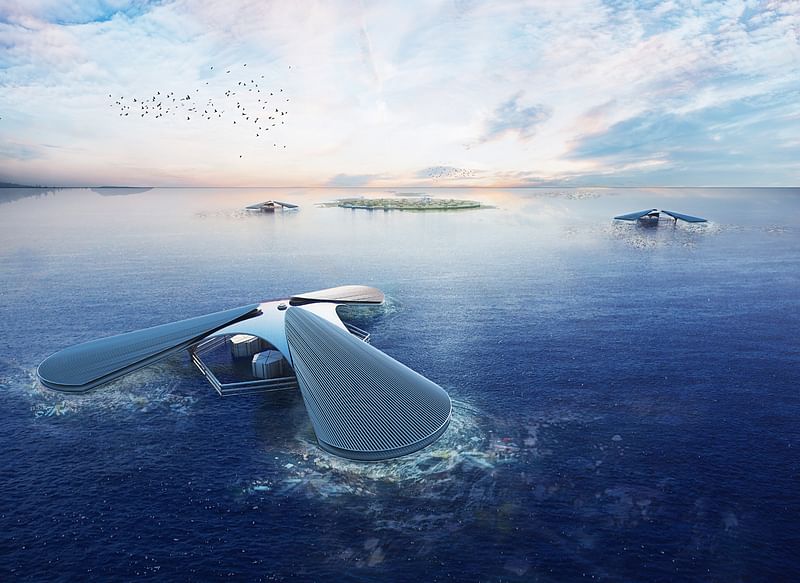
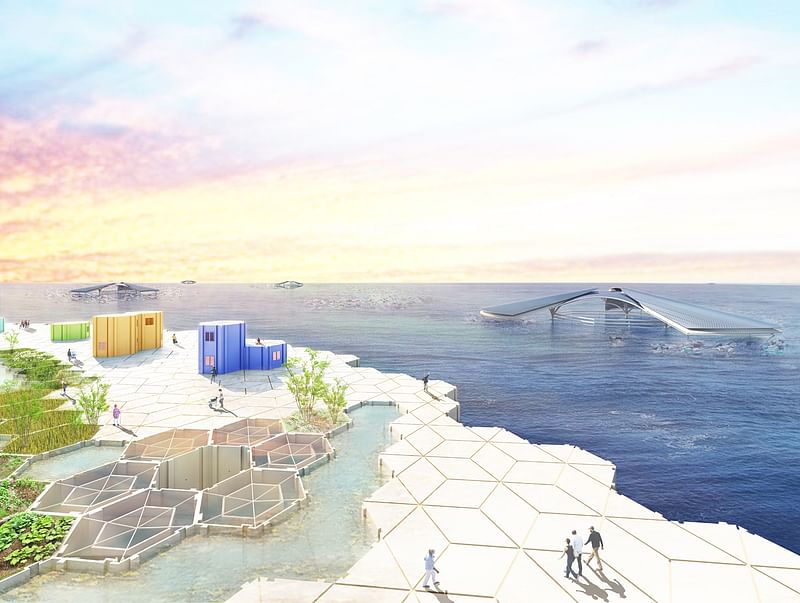
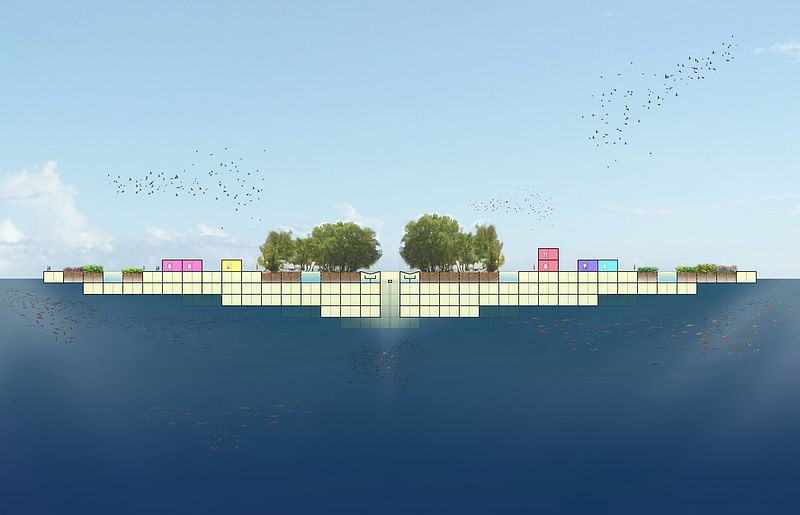
Project: "The seventh continent on duty for the climatic migrants - The massive use of plastic in our daily life is a real stake in which the main consequence is maritime pollution under macro-waste (materialization of a “seventh continent” in the middle of the oceans). Besides, the global warming risks to cause in years from here a sea level rise with dramatic consequences : the loss of soils for islanders, a potential migration of all these populations. This project aims to benefit from all the physical an chemical properties of plastic (low density, low temperature of transformation, elasticity, anticorrosion, low thermal conductivity) and its large presence in the ocean in the form of macro debris in order to use it as a key construction element in the cycle of living systems. Thanks to an oceanic navigating modulator, polluting plastics are recycled under the form of modules looking like alveolus. Those modules are then aggregated to create a new floating substrate and fit to serve as devices, welcoming vegetal matters useful to develop agriculture, desalinates sea water and permits the building of livable spaces."
Innovation and space architecture laureate: MARS MISSION
Team: Lam Wai Han, Choy Chung Lam, Chueng Sze Yu, Chuang Cheng Lin | Hong Kong, Taiwan.
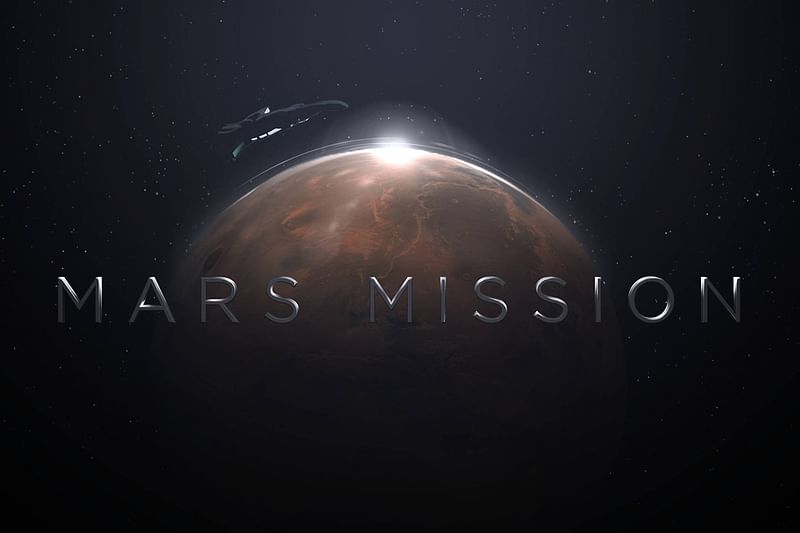
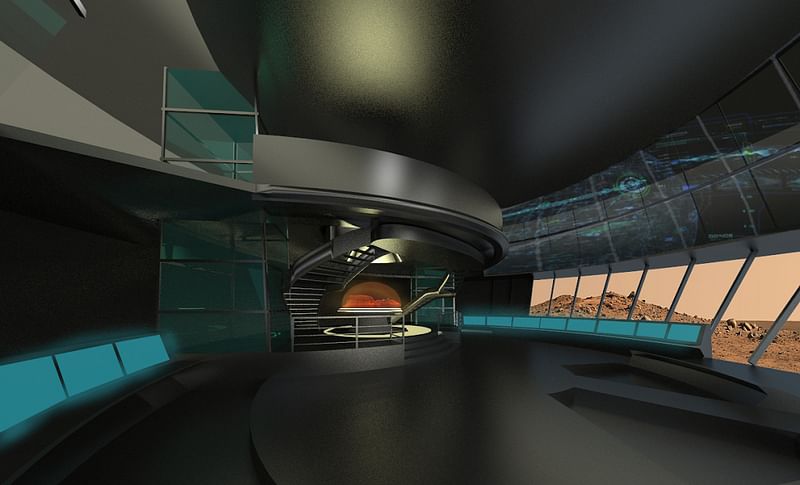
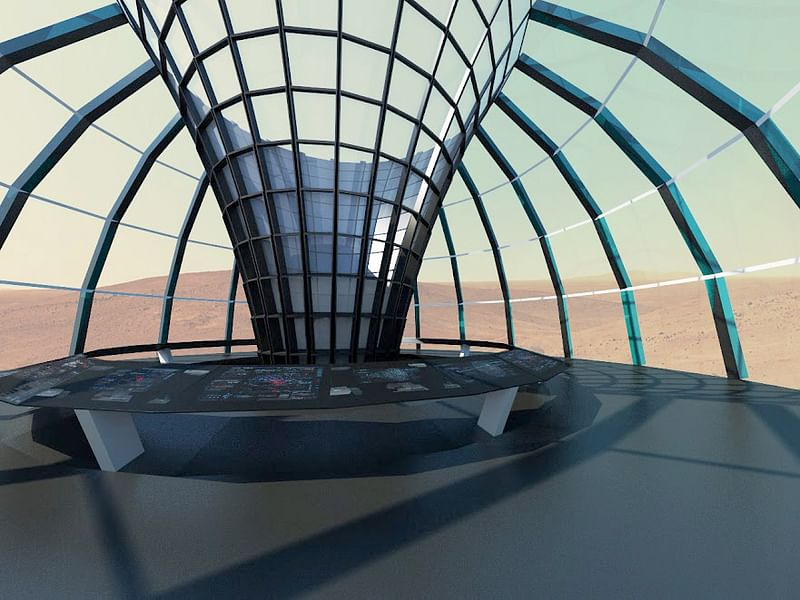
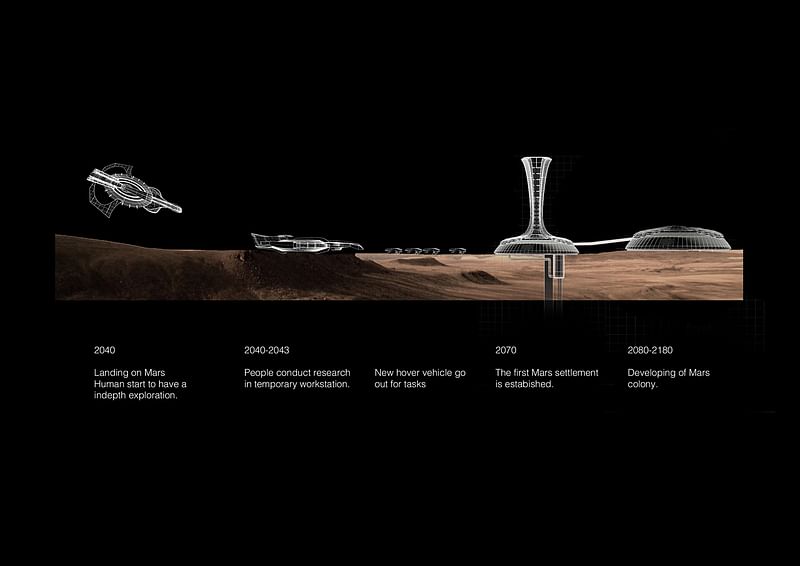
Project description: "Colonization of Mars - Because of vanishing resources and ever expanding population, discussions have been conduced to develop an off world colony in support for another 200 years. There is no way but finding another habitable planet. The Mars mission is a three phases project to achieve Mars colonization. The first phase is “exploration”. A group of researchers together with equipement will be sent to Mars to study history, geology, as well as possible signs of life. The second phase is “Experiment”. The idea is to establish an experimental self-sustainable settlement to carry out the test of an autonomous eco- system. The Third phase is “Terraforming”. This is an “Earth-shaping” process that forms a living environment similar to earth. At the end of the process Mars will become another home to humanity."
Check out the Special Mention, Coup de Cœur, and Coup de Cœur Babel-Collectif winners below.


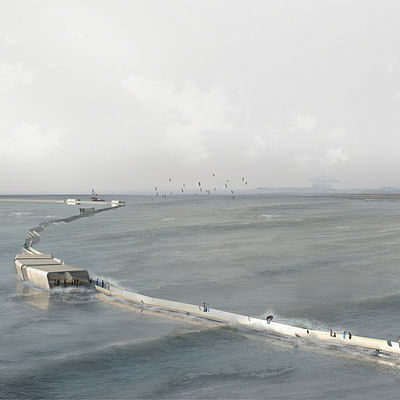




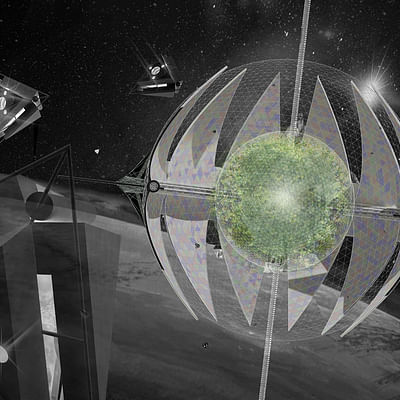

Share
0 Comments
Comment as :